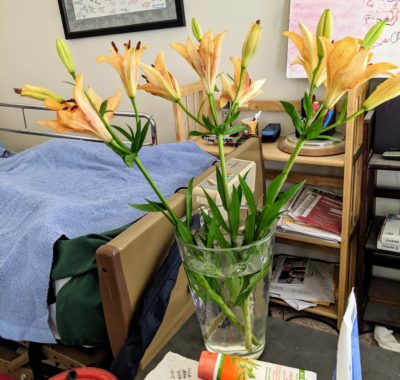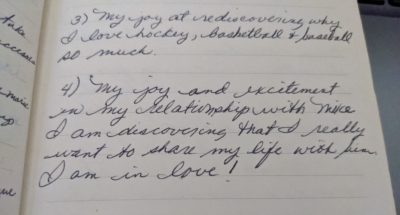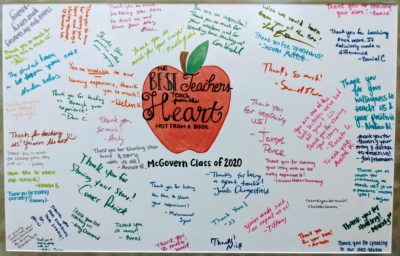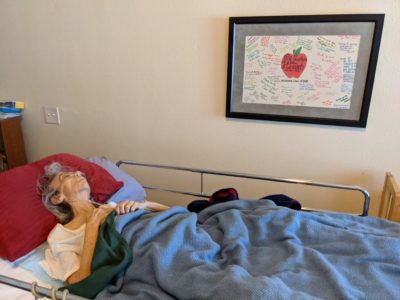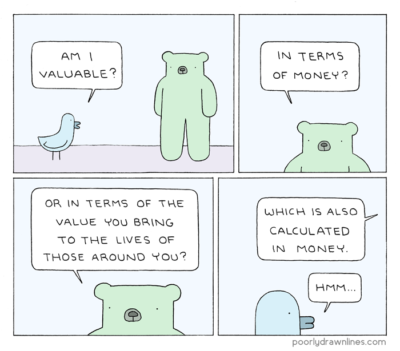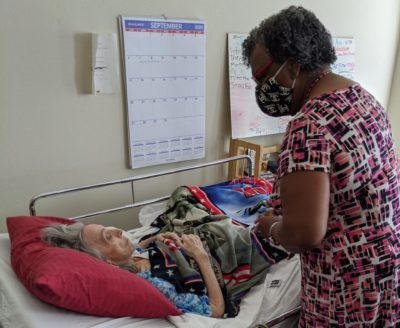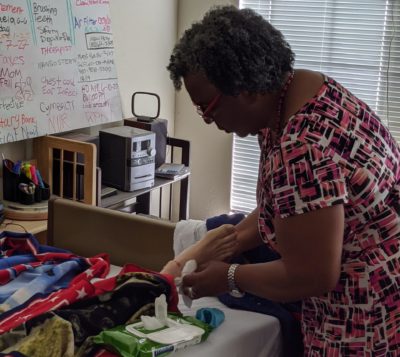This post describes, in part, the effects of a degenerative neurological condition called Huntington’s Disease. Any negative behavior on the part of my wife should be attributed to that condition. Any negative behavior on the part of myself should be attributed to my need for God’s ongoing grace.
If you would like to read our story from the beginning, you can start here: How We Got Here…
It is clear that death is drawing nearer. It would be nice if other things were equally clear. Dying is apparently a longer, more difficult process than I imagined. To be brutally honest, my main experience in watching people die has been via the medium of old westerns on TV or at the movies, where the process takes a maximum of about 30 seconds. True, my mother died a few years ago, but after standing by for 48 hours at her bedside, she waited until I went out for five minutes to get a sandwich, so all I got was a call from hospice that she was gone.
Old memories and attitudes continue to replay this week, though some are far from being “old friends” that have come to visit one last time. For example, this week Janet started to refuse her sublingual anxiety med because she said it made her constipated – and it does no good to remind her that she hasn’t had a bowel movement worthy of the name in several months, long before she started taking the sublingual meds. Her reply is always, “Well, I know my body!” – another very old tape that has been replaying a lot this week. I have often wondered how things might have been different if she had listened to her doctors, rather than fight them every step of the way. No doctor is perfect, but no doctor is 100% wrong, either.
We had to get her Foley catheter replaced because her original one was leaking. She has also become obsessed with the time. I bought her an “Alzheimer’s Clock” a couple months ago with letters big enough for her to read, but I suspect that she can no longer see things clearly that are more than a couple feet away.
This week we also decided to do Thanksgiving at home for the first time in several years. Typically we have gone out to keep things simple, but with Janet so ill, Frannie and I can’t be gone at the same time so I got a small bird and we are going to do it on our own again. In addition, we thought that Frannie’s boyfriend Leroy was going to eat with us, but his presence is required at his own family’s table – though he will be able to come by in the evening for pie and coffee. The end result is that we are going to have more turkey than we need for two, so if you are in southeastern Texas and alone, PM me and you can have Thanksgiving with us. Our place isn’t large but I think that we can fit in one or two more friends.
PS: If you like white meat, that is a “plus.” Frannie and I don’t.
❦ ❦ ❦ ❦ ❦ ❦
Maybe it’s the time of year, or maybe I am just becoming more sensitive due to where Janet is in the process of dying, but I seem to be seeing more posts expressing, as the title suggests, considerable “fear and loathing.” For example, fear of the future or the judgement of others, or self loathing rising from an unreasonable belief that you should do more, and complain less. The many other sources of these feelings are well known, so I won’t attempt to list them all here – besides you probably already in mind your own private list of triggers: that thing (or parade of things) that popped into your head as soon as you read the title.
This week I was conversing with a friend who has been amazing, caring for various members of her family for 40 years, yet she described being angry with herself for not doing more, and not being able to simply “snap out of it” when her latest loved one died. But it doesn’t take death to bring on the “fear and loathing.” I have seen the same issues come up when considering various care options for a loved one who is still alive. While the ”big one” is always the issue of whether it is time to consider a nursing home, it can also arise over issues such as needing to go to work, hiring an outside aide, preparing meals, or even asking for help from other family members.
And then there are the loathsome familial guilt-trippers. Like for example, the sister-in-law who lives two doors down and is constantly telling you what you should be doing to take care of your mother but refuses to lend a hand because, “She isn’t my Mom.”
The thing to remember when considering these issues is that there is a fundamental paradox involved. The people who logically have the least reason to feel these negative emotions (and guilt too, we can’t forget guilt!) often feel them the most strongly, while the people who have the most reason to feel them, rarely ever do. Why is that?
There may be many reasons, but a pattern I have observed over and over again is that good caregivers are never satisfied with the level of care they are providing. Consequently, they are constantly critiquing their own job performance and constantly finding it lacking. Combine this type of self judgement with the obvious fact that many caregivers are isolated from other human contact and you have the perfect setup for fear and loathing, with a heaping side dish of steaming guilt.
By contrast, we have what we shall call the good-enough caregiver. These people concentrate not on what the loved one needs, but what is good enough to be able to check all the right boxes. Just as the previous scenario is a recipe for fear and loathing, so this one typically ends in self-proclaimed absolution. “After all,” they reason, “what I’m doing may not be perfect, but it is good enough.”
But are those the only two options? Frankly, neither one is particularly appealing. For a little added insight, I once had a friend who was in AA. It was about this time of year and we were talking about how he gets through the holiday season sober, and his answer was telling. He said the way to get through it in one piece was to not get “too.” When I asked him what I meant he said, “You know: too happy, too sad, too depressed, too carefree, just don’t be ‘too’ anything. To stay out of the ditches, steer for the center of the road.”
So what does steering for the center of the road look like in caregiving? Well, the first step is make sure that we are making the most important thing, the Most Important Thing. Which is to say, making your loved one’s care the central focus of the exercise.
Next, make room for growth. We need to recognize that while constantly looking for ways to improve the quality of care is a good thing, that improvement is itself a journey, not a destination. Whether you are caring for your spouse as I am, or building automobiles like Toyota, the proper goal is not quality, but continually improving quality. So rather than beating yourself up for not as being as good as you will be tomorrow, acknowledge yourself for being better than you were yesterday.
Finally, we need to recognize that we do not have unlimited resources. While there are many things that we as caregivers can and do learn to do ourselves, there will often come a time when our loved one’s needs will out-strip what we can do, or learn how to do. When those situations arise, it is time to call in the people or services that can provide the needed care. In that case, your job as caregiver is to help identify, and set up the services that will provide what your loved one truly needs – which might require a bit of creativity.
For example, there was a situation where a daughter was worried for her parents, Her mother (84) had dementia and her primary caregiver was her father (86). It was absolutely clear to everyone in the family that Mom needed to be in a skilled nursing facility, but Dad wouldn’t hear of it. In his noble mind, it was his job to take care of his beloved, not work for some stranger. The solution: the family found a care facility that they could go into together and share a room. This arrangement gave him the dignity of continuing to fulfill his duty to care for the love of his life, while giving him the support and care that he was increasingly needing too.
So take heart, if you are worried about how good a job you are doing, you are already over the first and largest hurdle: You care and are dedicated to the best of care for your loved one. Now just steer for the center of the road.
In Christ, Amen ☩
❦ ❦ ❦ ❦ ❦ ❦
A prayer for when you are feeling guilty and afraid…
“Blessed are You, Lord God, King of the Universe. It is right that I should at all times and in all circumstances bless You for the divine wisdom and care that gives the cosmos its form. But today I want to bless You especially for the reassurance and strength that You provide. Thank You for holding me up when I feel weak. Thank You for the gift of life that You have bestowed upon me, and that You allow me to share with { Name of your loved one }. Show me every day how to do the job better. Amen.”



